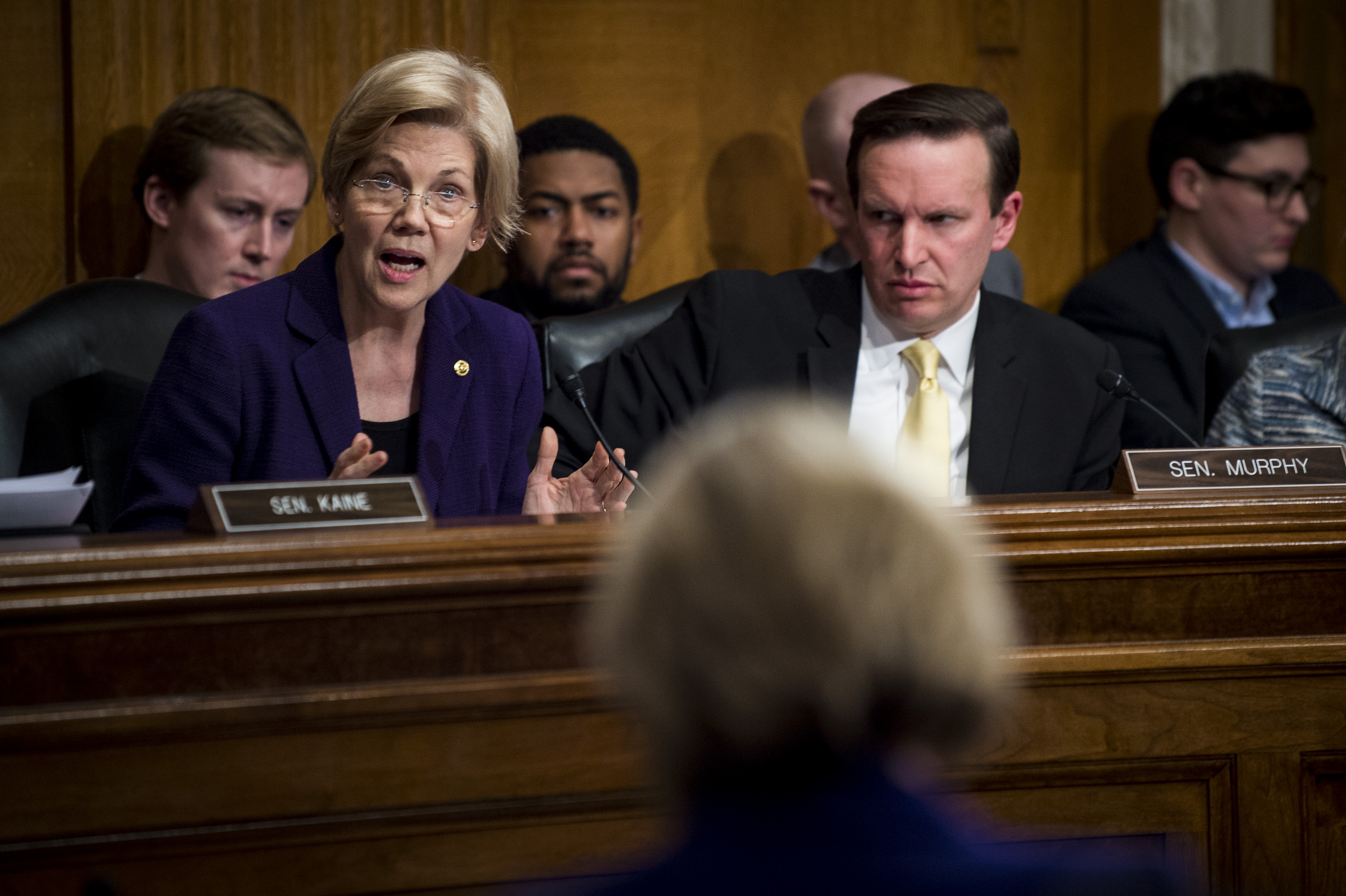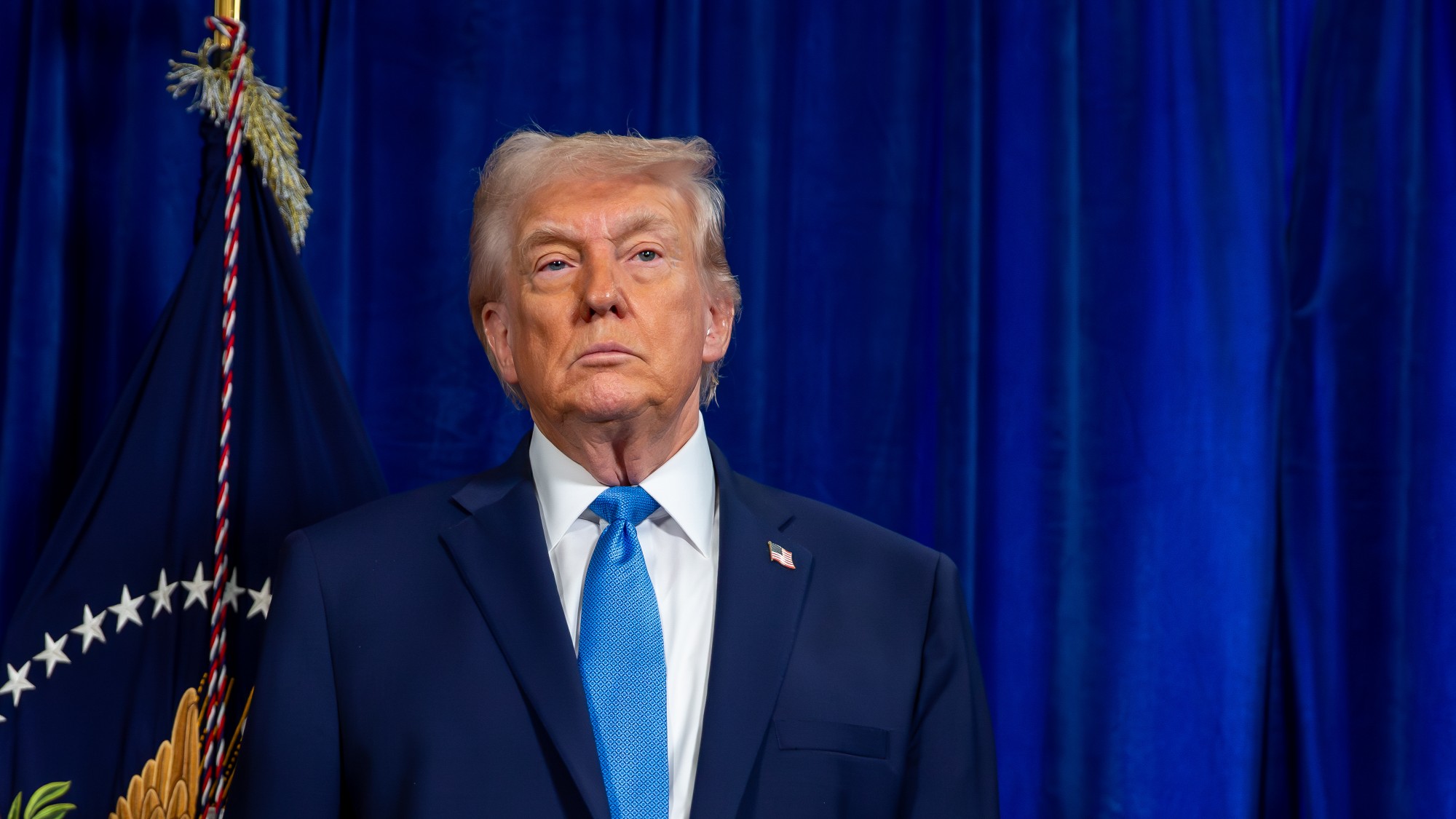Liberals are wrong to gang up on Betsy DeVos
Her ideas about school choice could save our kids


A free daily email with the biggest news stories of the day – and the best features from TheWeek.com
You are now subscribed
Your newsletter sign-up was successful
I'm a conservative. But sometimes wonder if I could describe myself as a member of the political left.
After all, I am animated by the same moral instinct that leftists endlessly and loudly profess: the belief that a society's moral worth is measured by how it treats its weakest, neediest, and most marginalized members. Like them, I am outraged by all the ways in which our society screws over the little guy. These convictions are born of my Christian faith and are anchored deep in my mind and heart.
But it's those same moral convictions that too often make me angry at the political left as it currently exists in the West, and make it impossible for me to call myself a leftist. Perhaps nothing exemplifies this better than the debate around the confirmation of Education Secretary Betsy DeVos and her stance on school choice.
The Week
Escape your echo chamber. Get the facts behind the news, plus analysis from multiple perspectives.

Sign up for The Week's Free Newsletters
From our morning news briefing to a weekly Good News Newsletter, get the best of The Week delivered directly to your inbox.
From our morning news briefing to a weekly Good News Newsletter, get the best of The Week delivered directly to your inbox.
School choice is not a fantasy of right-wing ideologues. For parents of means, it is a reality. They are able to either pay for private schools or move to districts with high-quality public schools. What school choice advocates like DeVos want is simply for poor children to have the same opportunities afforded to those parents who are better off. Opportunities that, by the way, many liberal parents happily exercise for themselves.
What's so wrong with the public school system as it is? Well, a lot.
Large, centralized, bureaucratic, top-down systems are impervious to change, innovation, institutional learning, and adaptability. They are particularly disadvantaged when it comes to being responsive to the needs of those they are supposed to serve — as opposed to those of the insiders who man them. A public school classroom is not some platonic ideal of learning. It was born out of a very specific time and place, the late 19th century, when the elite ideal was the industrial assembly line. The way schools are designed today is based on these old ideas, which are rooted in shoddy philosophy and pseudo-science that has long been outdated.
Consider this: If a 19th century school teacher walked into a contemporary classroom, she would feel right at home, and could start teaching with minimal adaptation. Meanwhile, if a 19th century surgeon walked into a contemporary operating room, he would be utterly out of place, and if he wanted to perform a surgery, he would have to go through years of unlearning and relearning. This simple analogy should have us running around with our hair on fire every single day from sunrise to sundown in a state of collective fury.
A free daily email with the biggest news stories of the day – and the best features from TheWeek.com
Why haven't schools changed? In so many spheres of human endeavor — medicine, business, the military, and academia — new scientific discoveries, new organizational paradigms, and technological change have brought evolution and transformation. Innovation and efficiency comes about through a complicated trial-and-error process, one which is most effective the more decentralized it is, exactly the kind of process that large, top-down, centralized, bureaucratic organizations are most impervious to.
This issue is personal for me. As I was growing up, my family had economic ups and downs, and I experienced the worst as well as the best of what the school system in an advanced First World country had to offer. I had an unconventional learning style, which meant I did not do well in traditional public schools, and it was only because my parents eventually had enough money to put me in private schools that I eventually made something of myself academically. There is no doubt in my mind that if I had I not been afforded these opportunities, I would have become a teenage dropout.
I have personally witnessed the destruction that a top-down, one-size-fits-all, bureaucratic system can wreak on the lives of children who have the gall to be a square peg in a round hole, or have underprivileged parents, or both. There are so many kids with tremendous gifts whose lives will never reach their full potential because the public school system lets them down.
I broke out, and did well for myself. Now my own daughter goes to an alternative private school where she thrives to an astonishing degree, even as public school parents around me are in various states of dismay and panic. Every time I drop my daughter off or pick her up from school or go to a PTA meeting, I utter a silent prayer of thanks for this incredible luck and joy, right before my heart breaks at the thought of the parents who do not have the same privilege.
And then, if I'm in a sour mood, my thoughts go to the progressives who would sanctimoniously explain that, because I am a conservative, and I support school choice, I am somehow an advocate for cruelty or disregard for the poor. But it is they who are the members and agents of a political coalition whose goal is the sustainment of a system that actively destroys underprivileged children's lives.
Maybe you disagree, and that's fine. But for all that is beautiful, spare me your sanctimony. My cause is holy, and yours stinks to high heaven.
Pascal-Emmanuel Gobry is a writer and fellow at the Ethics and Public Policy Center. His writing has appeared at Forbes, The Atlantic, First Things, Commentary Magazine, The Daily Beast, The Federalist, Quartz, and other places. He lives in Paris with his beloved wife and daughter.
-
 Touring the vineyards of southern Bolivia
Touring the vineyards of southern BoliviaThe Week Recommends Strongly reminiscent of Andalusia, these vineyards cut deep into the country’s southwest
-
 American empire: a history of US imperial expansion
American empire: a history of US imperial expansionDonald Trump’s 21st century take on the Monroe Doctrine harks back to an earlier era of US interference in Latin America
-
 Elon Musk’s starry mega-merger
Elon Musk’s starry mega-mergerTalking Point SpaceX founder is promising investors a rocket trip to the future – and a sprawling conglomerate to boot
-
 The billionaires’ wealth tax: a catastrophe for California?
The billionaires’ wealth tax: a catastrophe for California?Talking Point Peter Thiel and Larry Page preparing to change state residency
-
 Bari Weiss’ ‘60 Minutes’ scandal is about more than one report
Bari Weiss’ ‘60 Minutes’ scandal is about more than one reportIN THE SPOTLIGHT By blocking an approved segment on a controversial prison holding US deportees in El Salvador, the editor-in-chief of CBS News has become the main story
-
 Has Zohran Mamdani shown the Democrats how to win again?
Has Zohran Mamdani shown the Democrats how to win again?Today’s Big Question New York City mayoral election touted as victory for left-wing populists but moderate centrist wins elsewhere present more complex path for Democratic Party
-
 Millions turn out for anti-Trump ‘No Kings’ rallies
Millions turn out for anti-Trump ‘No Kings’ ralliesSpeed Read An estimated 7 million people participated, 2 million more than at the first ‘No Kings’ protest in June
-
 Ghislaine Maxwell: angling for a Trump pardon
Ghislaine Maxwell: angling for a Trump pardonTalking Point Convicted sex trafficker's testimony could shed new light on president's links to Jeffrey Epstein
-
 The last words and final moments of 40 presidents
The last words and final moments of 40 presidentsThe Explainer Some are eloquent quotes worthy of the holders of the highest office in the nation, and others... aren't
-
 The JFK files: the truth at last?
The JFK files: the truth at last?In The Spotlight More than 64,000 previously classified documents relating the 1963 assassination of John F. Kennedy have been released by the Trump administration
-
 'Seriously, not literally': how should the world take Donald Trump?
'Seriously, not literally': how should the world take Donald Trump?Today's big question White House rhetoric and reality look likely to become increasingly blurred
